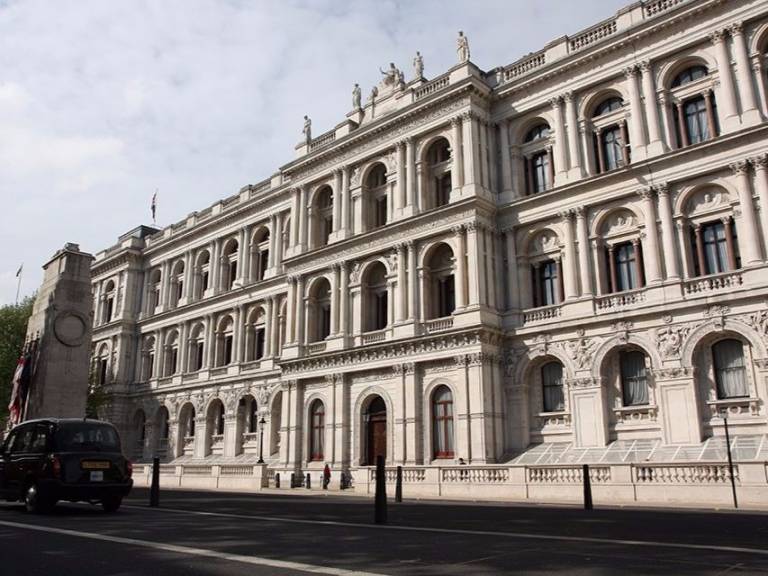UCL to train FCO diplomats and staff in economic skills from knowing markets to handling crises
29 November 2017
UCL win flagship contract to train the Foreign and Commonwealth Office's staff and diplomats around the world in economics

UCL has won a flagship contract to train the Foreign and Commonwealth Office's staff and diplomats around the world in economics, ranging from how different markets and exchange rates operate to the economics of climate change and macro-economic crises.
The bespoke courses, aimed at degree level learners, will be largely delivered online and are geared towards giving FCO staff practical insights on the markets and economies where they are posted.
"We are giving FCO staff ways to operationalise knowledge in a way that is useful in their posts," said Parama Chaudhury, academic director of the programme which is being delivered by UCL's Centre for Teaching and Learning Economics (CTaLE) and Department of Economics.
Tony Osude, a director at UCL Consultants Ltd (UCLC), said: "This contract is a wonderful opportunity for UCL, the top-ranked Economics research department in the UK, to share its knowledge at the heart of government. It also provides a great platform for UCL's innovative teaching methods."
Shamik Dhar, FCO Chief Economist and Head of the Diplomatic Academy Economics and Prosperity Faculty, said: "UCL won the contract by really thinking through what our diplomats need in their day jobs and are designing a course that is accessible to the whole of the FCO's global network".
Economists from UCL will train up to 300 FCO staff a year over four years. The FCO has held economics courses for its staff for many years; however, UCL will modernise the way economics is taught in the FCO.
The programme was designed to suit staff out in the field who might have to take the courses after a busy day. It includes video on demand, with teaching broken into 15 to 20 minute sections, and live interactive webinar sessions.
Staff are able to go at their own pace and are empowered to develop their own learning and economic skills by being pointed to publicly-available databases and resources where they can build on what they are taught.
A series of masterclasses are also planned, with potentially one four days long in the UK and at least two abroad over three days based in hubs such as Washington for the Americas or Singapore for South East Asia.
"We will be introducing learners to cutting edge research," said Dr Parama Chaudhury, a principal teaching fellow at UCL. "Learners in this programme will be equipped with the knowledge of the most reliable and current research on pressing issues, and what the experts in the field are presently recommending in terms of policy."
The topics, built into two parts with one billed as Core Learning (CL) and one Job Specific Learning (JSL), are practical, enabling learners to see their application in their role and the markets in which they work.
The key CL topics are Markets (how they work and what happens when they don't), the Macroeconomy (how to measure it and how to fix it when something goes wrong), and Economics Data and Empirical Methods (how economists learn about the world and test their theories).
The JSL topics include Globalisation, Labour Markets, Macroeconomic Crises, Regulating Markets, Political Economy, the Public Sector, the Economics of the Environment and Economic Growth and Development.
The contract is a coup for UCL's Economics Department, which is the top-ranked Economics research department in the country, and has won worldwide accolades for its innovative teaching of introductory economics based on the CORE project, including The Economist, which described it as an "overdue overhaul" that gets students to tackle the real world.
The contract was won through an open competition where UCL scored particularly highly on content and focus on learner needs.
Image
Foreign and Commonwealth Office (Credit: Foreign & Commonwealth Office; Source: Flickr)
Media contact
Charles Hymas
Tel: 020 3108 3843 / 07881 833274
Email: c.hymas [at] ucl.ac.uk
 Close
Close

